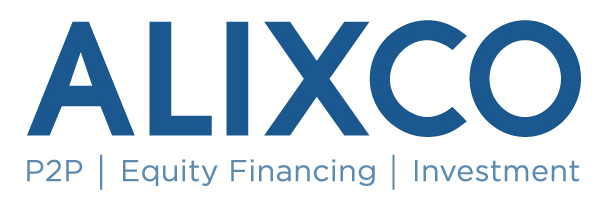RISK WARNING
This Risk Warning statement (the “Risk Warning”), must be read together with our Terms of Service and any other documents referred to therein, which serves also as a notice to inform you as well as to set out the risk involved, when you access or use our Services or interact with us.
In order to help you to understand the risks involved when investing in equity through our Services, please read the following risk summary.
By continuing to access or use our Services, or interact with us, you have agreed and understood to the content of this Risk Warning. As such you will not hold Alixco accountable or liable for any loss or damages incurred by you as a result of using our Services.
RISKS WHEN INVESTING IN EQUITY
Investing in shares (also known as equity) on our Services does not involve a regular or fixed return on your investment unlike the money market, private debt, unit trust and/or other investment instruments which may offer interest paid regularly (dividend monthly or annually). When investing in equity, the Investor must always bear in mind the risks that are involved in equity investing. The risks of equity investing includes but is not limited to the following:
- Loss of Investment
The majority of start-up, small to medium enterprise, and/or social enterprise businesses fail or do not scale as planned and therefore investing in these businesses may involve significant risk taking on the part of the investor. It is possible that you may lose all, or part, of your investment made in our Services. In the circumstances, you should only invest based on your risk appetite i.e. an amount that you are willing to lose. You should consider building a diversified portfolio as a strategy to spread your investment risk and increase the chance of an overall return on your investment capital. If a business you invest in fails, neither the Issuer nor Alixco will reimburse you for any loss or damages incurred by you from your investment.
- Lack of Liquidity
Liquidity means the ease with which you can sell or dispose of your shares after you have purchased them on our Services. Buying shares in Issuer through our Services cannot be sold or dispose easily and they are unlikely to be listed on a trading market or stock exchange, such as Bursa Malaysia Stock Exchange. Even for a very successful Issuer, there is no guarantee that their shares will be listed on such an exchange or sold of in trade sale.
- Dilution of Shares
Any investment in shares made through our Services may be subject to dilution in the future. Dilution occurs when a company issues more shares to new or existing shareholders. Dilution affects every existing shareholder who does not buy any of the new shares being issued. As a result an existing shareholder's proportionate shareholding of the company is reduced, or ‘diluted’-this has an effect on a number of things, including voting, dividends and value.
Some Issuer who is listed for equity investment through our Services may offer shares, which may include pre-emption rights that protect an investor from dilution. In this situation the Issuer must give the shareholders with shares which include pre-emption rights the opportunity to buy additional shares during a subsequent fundraising round so that they can maintain or preserve their shareholding proportion. Please check the Article of Association or Shareholders’ Agreement of the Issuer to see if the shares you are buying will have these pre-emption rights.
- Rarity of dividends
Dividends are payments made by an Issuer to its shareholders from the company’s profits. Most of the Issuers listed on our Services are start-ups or early stage companies, and these companies will rarely pay dividends to their investors. This means that you are unlikely to see a return on your investment until you are able to sell your shares. This is because, instead of declaring dividends, profits are typically re-invested into the business to fuel growth and build shareholder value. Furthermore, Issuer have no obligation to pay shareholder dividends.
- Lower in the participation order on winding up
If an Issuer falls into financial difficulty and goes out of business, other creditors and debt holders with seniority – including fixed charge holders, employees who are owed wages, banks, and secured debtors - will be compensated and given priority first. This means it is unlikely that ordinary shareholder, whose unsecured investment sits below all of the previously mentioned in the participation order, will have their initial investment or returned to them after higher ranked creditors are compensated.
THE NEED FOR DIVERSIFICATION
Diversification involves spreading your money across different types of investments with different risks to reduce your overall risk. However, it will not lessen all types of risk. Diversification is an essential part of investing. Investors should only invest a proportion of their available investment funds via our Services and should balance this with safer, more liquid investments.
